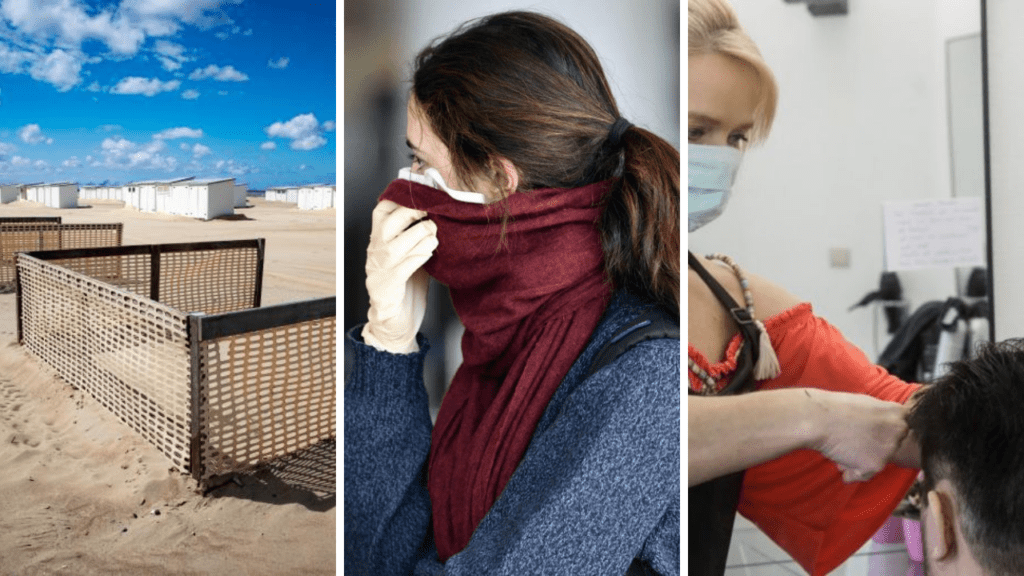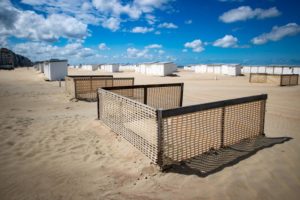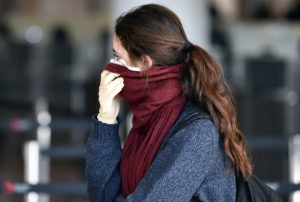To answer the question posed in the headline, pretty much exactly what we expected. Belgium will push into the next phase of deconfinement as countries the world over start to ease their own measures, open borders and more.
The next phase in the exit plan will start on 8 June, at the earliest. Further relaxation of the measures regarding sports competitions, tourism (including day trips within Belgium), the reopening of the hospitality sector and more social contact will be discussed then.
As it stands, all events remain prohibited until at least 30 June - but what happens after that is totally unknown, much to the dismay of the hospitality, weddings and events sectors.
To help you recap what you might have missed, we've got an explainer on how haircuts will work, the two sides of the debate on breathing, and the latest figures.
With so much information, and so little time to catch up before it potentially changes again, here are some of the top stories from around the country to get you up to speed.
Belgium in Brief is a free daily roundup of the top stories to get you through your lunch break conversations. To receive it straight to your inbox every day, sign up below:
1. 60 new deaths, 81 hospital admissions in Belgium
307 additional people have tested positive for the new coronavirus (Covid-19) in Belgium in the last 24 hours, according to figures by the Federal Public Health Service on Thursday.
This brings the total number of cases in Belgium, since the beginning of the pandemic, to 54,288. The total reflects all people in Belgium who have been infected, and includes confirmed active cases as well as patients who have since recovered, or died from the consequences of the virus.
186 of the newly-infected people live in Flanders, 90 live in Wallonia, and 31 live in Brussels. Read more.
2. Exit phase 2 starts as planned from 18 May
Belgium will go ahead with the next phase of its exit plan out of the lockdown from 18 May as planned, announced Prime Minister Sophie Wilmès during a press conference on Wednesday.
Following a meeting with Belgium’s National Security Council, that started at 9:00 AM on Wednesday, Wilmès announced the country’s next stage, Phase 2, in its deconfinement strategy.
“We, and the experts of the Group of Experts for the Exit Strategy (GEES), monitor the situation day after day. We continue to ask you to follow the safety measures, which you probably already know by heart,” Wilmès said. Read more.
3. How getting a haircut works from Monday
Hairdressers are allowed to reopen from Monday 18 May, but staff and clients have to wear a face mask. How will that work?
Belgium’s National Security Council decided on Wednesday that professions that require a lot of contact with the clients, such as hairdressers, can restart work from Monday, under strict conditions.
“The hairdressers and the clients have to wear a face mask, or mouth-nose protection, and respect the social distance as much as possible,” Belgian Prime Minister Sophie Wilmès said during the press conference. Read more.
4. ‘Know the risks’ as lockdowns lift, expert warns
Hosting a few friends at home could be riskier than going grocery shopping or having a jogger whisk past you when it comes to catching the coronavirus, according to an immunology expert’s viral blog post.
In a post which has received over 10 million views, Dr Erin Bromage, a biology professor specialising in infectious diseases and immunology, laid out a detailed explanation of the settings and situations where people are most at risk of contracting the virus.
Bromage, who teaches at the University of Massachusetts Dartmouth, wrote the explainer as some US states began to ease lockdown restrictions, warning that such a move risked “giving the virus more fuel.” Read More
5. Companies face future logjam as employees postpone all holidays
The number of employees taking holidays in April fell by two-thirds compared to last year, according to human resources consultancy Securex.
Clearly the Covid-19 pandemic was the main cause, with many if not most holiday destinations shut down and travel restrictions in place.
Employees will have the opportunity to take the leave owed to them later in the year, Securex said, but that presents a problem of its own: a massive explosion in demand once holidays again become an option. Read more.
6. Marriage sector sees little change despite relaxed measures
Up to 30 people will be allowed to attend a wedding ceremony from Monday 18 May, Belgium’s National Security Council decided on Wednesday.
The guests may only attend the wedding ceremony. Organising a reception or a party afterwards is still not allowed. Additionally, all guests must be able to keep their distance from each other.
The measure follows a previous relaxation that also allowed the parents of the marrying couple to attend, in addition to the witnesses. Read more.
7. Practically zero chance to spread the virus through breathing
The transmission of the coronavirus through breath is zero or practically zero in case a person doesn’t speak, according to Belgium’s Federal Public Health Service (FPS).
“That risk is further reduced if people wear masks,” Yves Van Laethem, a spokesperson from the FPS clarified on Wednesday’s crisis press conference.
As social life starts to resume little by little, Yves Van Laethem points out that although the virus “in certain circumstances can spread very quickly, this is not always the case.” Read More.
Jules Johnston
The Brussels Times



